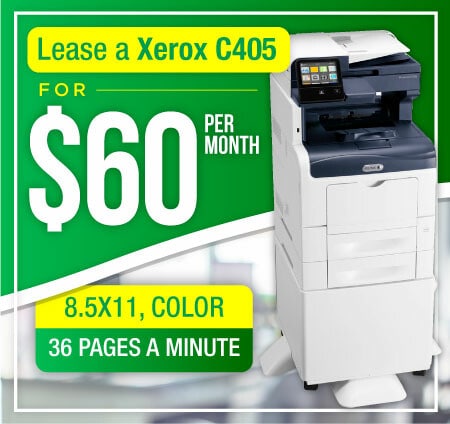Copier Leases
Making Your Copier Lease a Smart Investment Nationwide
When you decide to sign a copier lease, you’re entering into a long-term business relationship, often lasting five years or more. Before you sign, it’s important to take the time to read the lease agreement carefully. Understanding the terms is essential, and if anything seems unclear, don’t hesitate to ask for clarification.
Lease agreements are written by attorneys, and while they serve to protect the leasing company, it’s important that the terms work for you as well. If any of the conditions don’t sit right with you, feel free to ask for adjustments or explore other options. A good copier lease should align with your needs and your budget.
Many leases include additional charges such as documentation fees, return fees, and service-related premiums. These charges can add to your overall costs, but by understanding the lease upfront, you can avoid any surprises and ensure that you’re getting the best deal possible.
Understanding Common Fees
Here are some common lease fees and how to manage them:
- Documentation Fees
This fee typically covers the cost of preparing the lease agreement, and while it’s common, it doesn’t have to be a large expense. You can often reduce this fee by simply asking the leasing company to lower it, saving you money upfront. - Return Fees
A return fee might be charged at the end of the lease if you choose not to purchase or extend the lease. These fees are often included as part of the lease agreement, but you can avoid this by choosing a $1 Buyout lease, which allows you to purchase the copier for just $1 at the end of the term.
How to Make the Best Choice
When leasing a copier, it’s important to choose a plan that fits your needs both financially and operationally. A $1 Buyout lease is an excellent option for many businesses, as it allows you to own the copier at the end of the lease without worrying about return fees or additional costs.
Get Your Free Copier Quote Today!
Leasing a copier should be an informed decision that benefits your business. If you’re looking to lease a copier anywhere in the USA, contact us today for a free copier quote! Our team is here to help guide you through the process and ensure that your copier lease is a smart, cost-effective investment for your company.

